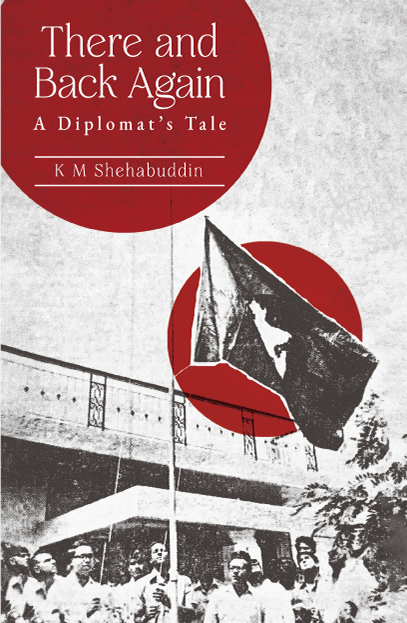- Shop
- There and Back Again
There and Back Again
A Diplomat's Tale
2023 https://uplbooks.com/shop/9789845063906-there-and-back-again-3049 https://uplbooks.com/web/image/product.template/3049/image_1920?unique=90f5a49
| Language: English |
Tags :
Book Info
On the night of March 15, 1971, K.M. Shehabuddin, a young Pakistan Foreign Service Officer, was posted in Delhi. The news that filtered in from East Pakistan led him to renounce his allegiance to Pakistan and pledge loyalty to the unborn state of Bangladesh. The first career diplomat to join the war - even before the formation of the Mujibnagar Government - he became the first head of Bangladesh's Delhi mission. From April to October 1971, he played a leading role on the diplomatic front of the liberation war. Shehabuddin was also able to witness first-hand India's participation in the liberation war. Apart from his experiences in 1971, Shehabuddin also recounts other historic events that took place during his 35-year career as a diplomat in South Asia, Europe, the Middle East, and finally the United States. In 1975, as the charge of affairs of Bangladesh in Lebanon, he witnessed the start of the Lebanese civil war that would last 15 years. As ambassador in Poland in the mid-eighties, he observed the Solidarity Movement's clandestine but determined efforts under the leadership of Lech Walesa to overthrow the Communist rule and introduce Western-style democracy. In 1990, he was ambassador of Kuwait when Iraqi President Saddam Hussein invaded the emirate, and Shehabuddin and his officers defied Saddam's orders to relocate to Baghdad and chose to stay behind in Kuwait as long as it was possible. His final posting before retirement was as Bangladesh Ambassador to the United States from 1996 to 2001, significant in that it was during his ambassadorship that President Clinton paid a state visit to Bangladesh, the first by an American president. While documenting the importance of multilateralism, strong personal rapport, and proactive networking in international diplomacy, the book also takes readers backstage to view the many dilemmas and decisions involved in major events. Shehabuddin's often gripping account of events he witnessed and was shaped by, and, in some instances, helped shape, is a must-read for all interested in international relations, foreign policy and the current state of Bangladeshi diplomacy.

K M Shehabuddin
K. M. Shehabuddin, retired in 2001 as ambassador to the United States, with concurrent accreditation to Mexico, Guatemala, and Columbia. Earlier, he served an ambassador to France concurrently to Spain, UNESCO and the World Tourism Organization, ambassador to Kuwait with concurrent accreditation to Yemen, and ambassador to Poland concurrently to Hungary. He also served as Deputy High Commissioner to Britain before his appointment as ambassador. He became Secretary to the Government in 1993 and participated in many international conferences and UN General Assembly sessions.

কে এম সাহাবুদ্দিন
K. M. Shehabuddin, retired in 2001 as ambassador to the United States, with concurrent accreditation to Mexico, Guatemala, and Columbia. Earlier, he served an ambassador to France concurrently to Spain, UNESCO and the World Tourism Organization, ambassador to Kuwait with concurrent accreditation to Yemen, and ambassador to Poland concurrently to Hungary. He also served as Deputy High Commissioner to Britain before his appointment as ambassador. He became Secretary to the Government in 1993 and participated in many international conferences and UN General Assembly sessions.



